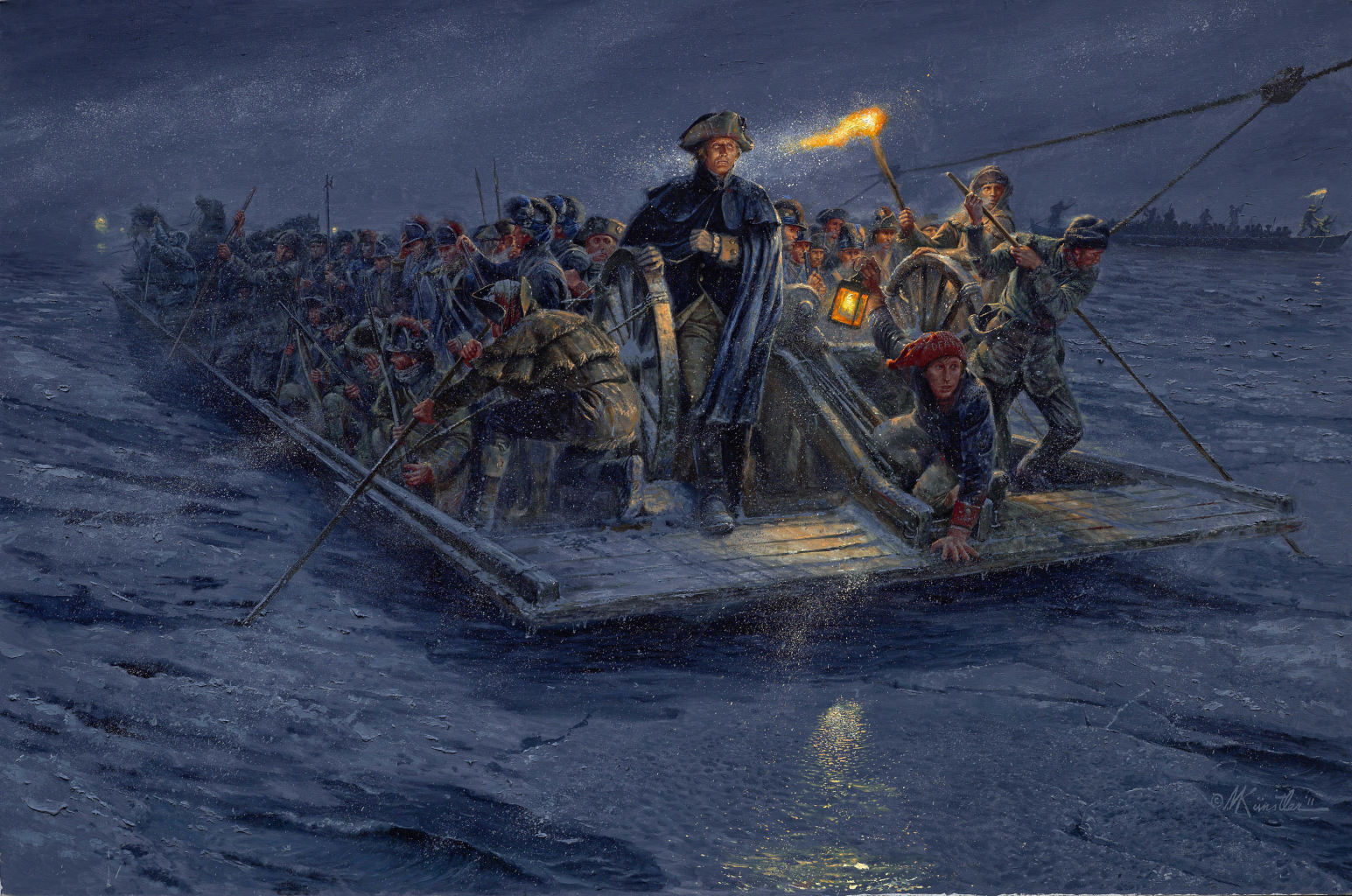
This
updated photo of a painting provided by the artist Mort Kuntsler, shows “Washington's
Crossing: McKonkey's Ferry, Dec. 26, 1776." This painting is probably a more realistic
portrayal of the event, with the men on barges wearing their own clothes
huddled together for warmth.
In
1659 Christmas celebrations were banned in most of the New England colonies by
Calvinists and Puritans. Massachusetts
imposed a fine of five shillings for observing the day and Connecticut
prohibited keeping Christmas, Saints days, reading the Book of Common Prayer,
playing an instrument, or making mince pies. However, in communities with large
populations of Anglicans, Roman Catholics,
Lutherans, and Moravians such as New York and Philadelphia, Christmas was
celebrated. In parts of the south
celebrations included fox hunts, balls, gift exchanges and extended revelry.
Missionary Philip Fithian wrote in
his diary of singing the hymns of Isaac Watts including “Joy to the World” one
Christmas Eve in Staunton, Virginia but 1775 found him in western Virginia,
Scotch-Irish territory “Where Christmas Morning--Not A Gun is heard--Not a
Shout--No company or Cabal assembled--To Day is like other Days every Way calm
and; temperate-- People go about their daily Business with the same Readiness,
and apply themselves to it with the same Industry.”
In 1775 King George gave the
colonies the gift of a royal proclamation effective in March 1776: all commerce
and trade to those shores was closed. Congress did receive some good news when
France agreed to consider supporting the rebellion against Britain.
On December 11, 1776
Washington crossed the Delaware River into Pennsylvania and the next day the
Continental Congress left Philadelphia for a safer Baltimore. Thomas Paine, traveling with the Continental Army
wrote words that resounded when they were printed "...These are the times
that try men's souls: The summer soldier and the sunshine patriot will, in this
crisis, shrink from the service of his country: but he that stands it NOW
deserves the love and thanks of man and woman. Tyranny, like Hell, is not
easily conquered. Yet, we have this consolation with us, that the harder the
conflict, the more glorious the triumph."
Two weeks later in the evening of Christmas Day in a nor’eastern, Washington crossed the Delaware River once again with 2400 men and led a surprise raid on the Hessian Troops at Trenton, New Jersey. He captured 900 mercenaries and lost only six wounded, Future president James Monroe was among the wounded.
The victory under miserable
conditions and Paine’s stirring words provided a morale boost for the
discouraged Continental Army and marked a turning point after repeated defeats
during the summer and fall. Washington’s
troops viewed as nothing more than “rebellious farmers’ by the British and
their paid Hessians had suddenly been transformed into a cohesive army to be feared
and defeated.
Two hundred and thirty seven years
ago what looked like it might be the end of a rebellion became a rebirth and a
renewed commitment to freedom.
posted by Diane Price
posted by Diane Price
No comments:
Post a Comment